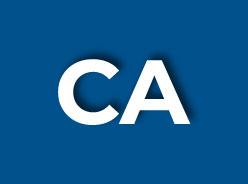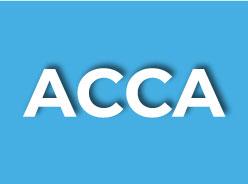In the ever-changing landscape of business education, new trends are continually shaping the way students and professionals pursue their dreams of acquiring an MBA. From the proliferation of online MBA programs to the dynamic developments in MBA Finance, it's an exciting time to be part of the world of business education.
The Digital Revolution in Business Education
The digital revolution has made a significant impact on the way education is delivered and consumed. Online MBA courses have become increasingly popular over the past decade. This trend is mainly attributed to the convenience and flexibility they offer to aspiring business leaders. Online MBA programs provide the opportunity to earn a degree from the comfort of one's own home, on one's own schedule, and from virtually anywhere in the world. This is especially appealing to working professionals and individuals with other commitments.
Online MBA courses cover a wide range of specializations, including Marketing, Human Resources, Operations Management, and MBA Finance. The key advantage of online MBA courses is the flexibility they provide. Students can continue working while pursuing their degree, which is a significant advantage for those who don't want to put their careers on hold.
The Evolving Landscape of MBA Finance
MBA Finance, a popular specialization within the MBA curriculum, is also undergoing significant changes. As the global financial landscape becomes increasingly complex, the demand for finance professionals who can navigate these intricacies is on the rise. The emerging trends in MBA Finance reflect this changing landscape:
- Data-Driven Decision-Making: The world of finance is becoming more data-driven, with the advent of big data and advanced analytics. As a result, MBA Finance programs now emphasize data analysis, financial modeling, and the use of technology to make informed financial decisions.
- Sustainable Finance: With growing awareness of environmental and social issues, sustainable finance is gaining prominence. MBA Finance programs are now including courses that focus on sustainability, ethical investing, and corporate social responsibility.
- Fintech Integration: The integration of financial technology (fintech) into traditional financial institutions is disrupting the industry. MBA Finance programs are adapting to this change by offering courses that cover blockchain, cryptocurrency, and digital banking.
- Global Financial Markets: As financial markets become more interconnected, MBA Finance programs are increasingly including international finance components to prepare students for global financial challenges.
The Role of Online MBA Programs in MBA Finance
Online MBA programs are playing a pivotal role in making MBA Finance education more accessible and flexible. With the global nature of finance, professionals from various parts of the world can enroll in MBA Finance programs online, learning from experts and institutions regardless of geographical boundaries.
One of the key benefits of online MBA programs in MBA Finance is the diverse cohort of students. It's not unusual for an online MBA Finance class to have participants from multiple countries and industries, providing a rich learning experience. This global exposure is invaluable in the finance field, where understanding different markets and cultures is essential.
Online MBA Programs: Benefits and Considerations
Online MBA programs offer numerous benefits, but they are not without their challenges. Here's a closer look at what aspiring MBA students should consider:
Benefits of Online MBA Programs:
- Flexibility: Online MBA programs allow students to set their own study schedules, making it possible to work full-time while pursuing an MBA.
- Cost Savings: Online programs often have lower tuition and eliminate expenses related to commuting and campus housing.
- Access to Top Institutions: Online MBA programs enable students to attend renowned business schools without relocating.
- Diverse Student Body: Online programs attract students from all over the world, fostering diverse perspectives and global networking opportunities.
Considerations for Online MBA Programs:
- Self-Motivation: Online students must be self-disciplined and able to manage their time effectively to succeed.
- Limited In-Person Interaction: Online programs may lack the in-person networking and team-building opportunities of traditional programs.
- Technology Requirements: Access to a reliable internet connection and appropriate hardware is essential for online learning.
- Accreditation: Ensure the program is accredited to ensure its quality and recognition by employers.
An integrated MBA + ACCA (Association of Chartered Certified Accountants) course is a specialized educational program that combines a Master of Business Administration (MBA) with the globally recognized ACCA qualification. This integrated course is designed to provide students with a comprehensive education in both business management and accounting, allowing them to develop a unique skill set and expertise in finance and business.
Here are some key aspects of an MBA + ACCA integrated course:
- Duration: The duration of an integrated program may vary, but it typically takes longer to complete than a standalone MBA or ACCA qualification due to the combined curriculum. These programs can range from 2 to 4 years, depending on the structure.
- Curriculum: The curriculum includes core MBA courses that cover various aspects of business management, such as finance, marketing, strategy, leadership, and entrepreneurship. Simultaneously, it incorporates the ACCA syllabus, focusing on accounting, auditing, taxation, and financial management.
- Exams: Students pursuing this integrated course will need to take both MBA and ACCA exams. ACCA exams are typically conducted separately, and students are required to pass a series of examinations to earn their ACCA qualification.
- Career Opportunities: Graduates of MBA + ACCA integrated programs are well-prepared for roles in finance, accounting, and various other business-related positions. They are equipped to handle both the financial and managerial aspects of businesses, making them versatile professionals in the corporate world.
- Professional Designations: Upon successful completion of both the MBA and ACCA components, students can use their MBA degree and ACCA qualification to pursue a wide range of professional roles and career opportunities. ACCA is a globally recognized accounting designation, which opens doors to accounting and finance positions worldwide.
- Advantages: This integrated approach offers a well-rounded education that combines financial expertise with broader business acumen, making graduates highly competitive in the job market. It's particularly beneficial for those interested in leadership positions where financial and business knowledge are essential.
Overall, an MBA + ACCA integrated course is an excellent option for individuals who want to build a strong foundation in both business management and accounting, as it provides a unique and powerful combination of skills that are in high demand in the corporate world. However, prospective students should carefully consider their career goals and time commitments before embarking on such a program, as it can be quite intensive.
With the world at their fingertips, aspiring business leaders can now embark on their educational journeys with greater ease, paving the way for a brighter future in the world of business and finance. Whether through online MBA programs or specialized MBA Finance courses, the opportunities are vast, and the knowledge is boundless for those willing to explore them.

 ABOUT LAKSHYA
ABOUT LAKSHYA  WHY CHOOSE LAKSHYA
WHY CHOOSE LAKSHYA  MISSION AND VISION
MISSION AND VISION  CHARTERED ACCOUNTANCY (CA)
CHARTERED ACCOUNTANCY (CA)  ACCA
ACCA  CMA-USA
CMA-USA  RESULTS
RESULTS 


